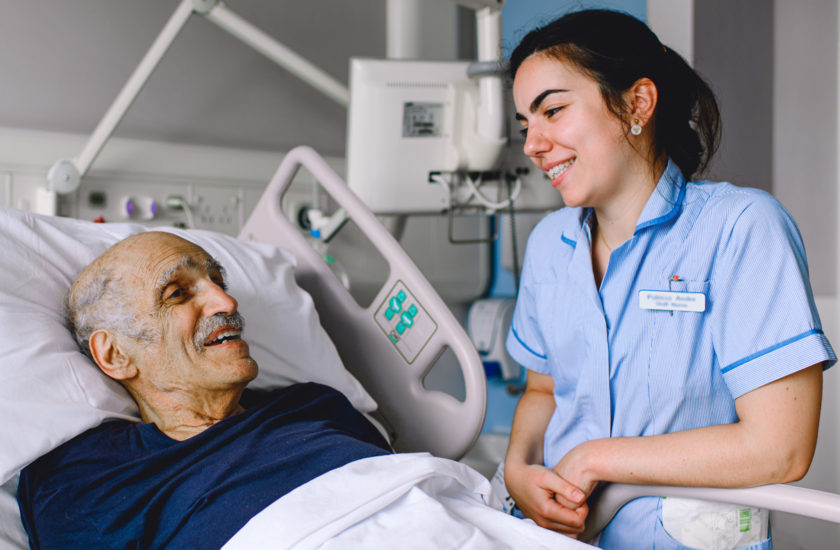Nursing is the largest, the most diverse, and one of the most respected of all the health care professions. There are more than 2.9 million registered nurses in the United States alone, and many more millions worldwide. While true demographic representation remains an elusive goal, nursing does have a higher proportional representation of racial and ethnic minorities than other health care professions. In some countries, however, men still remain significantly underrepresented.
The demand for nursing remains high, and projections suggest that such demand will substantively increase. Advances in health care technology, rising expectations of people seeking care, and reorganization of health care systems require a greater number of highly educated professionals. Demographic changes, such as large aging populations in many countries of the world, also fuel this demand.
History Of Nursing
Although the origins of nursing predate the mid-19th century, the history of professional nursing traditionally begins with Florence Nightingale. Nightingale, the well-educated daughter of wealthy British parents, defied social conventions and decided to become a nurse. The nursing of strangers, either in hospitals or in their homes, was not then seen as a respectable career for well-bred ladies, who, if they wished to nurse, were expected to do so only for sick family and intimate friends. In a radical departure from these views, Nightingale believed that well-educated women, using scientific principles and informed education about healthy lifestyles, could dramatically improve the care of sick patients. Moreover, she believed that nursing provided an ideal independent calling full of intellectual and social freedom for women, who at that time had few other career options.
In 1854 Nightingale had the opportunity to test her beliefs during Britain’s Crimean War. Newspaper stories reporting that sick and wounded Russian soldiers nursed by religious orders fared much better than British soldiers inflamed public opinion. In response, the British government asked Nightingale to take a small group of nurses to the military hospital at Scutari (modern-day Üsküdar, Turk.). Within days of their arrival, Nightingale and her nurses had reorganized the barracks hospital in accordance with 19th-century science: walls were scrubbed for sanitation, windows opened for ventilation, nourishing food prepared and served, and medications and treatments efficiently administered. Within weeks death rates plummeted, and soldiers were no longer sickened by infectious diseases arising from poor sanitary conditions. Within months a grateful public knew of the work of the “Lady with the Lamp,” who made nightly rounds comforting the sick and wounded. By the end of the 19th century, the entire Western world shared Nightingale’s belief in the worth of educated nurses.
Role of a Nurse
A nurse is responsible for far more than just taking vital signs and updating patient records. These professionals wear many different hats and are critical members of the healthcare team. Learn a bit more about a few of the important roles they play during each shift.
A nurse is an educator
For nurses, a crucial part of the job is educating patients and their families on their diagnosis. A nurse teaches patients how to manage their symptoms and explains treatment options. Nurses teach concrete skills, such as how to apply a dressing to a wound, as well as medical knowledge, like the signs and symptoms of worsening diabetes. More and more nurses are also tasked with educating patients on how to navigate the healthcare system, especially how to access care.
A nurse is a counselor
Nurses tending to the bedside get the privilege of building relationships with patients that physicians and other healthcare workers rarely get to experience. To many patients and their families, a nurse is their lifeline to the entire workings of the healthcare facility. By answering questions and listening to concerns, a nurse acts as an ambassador for a patient. Patients enter the hospital for physical care. But it’s not just the physical care they receive that matters —the emotional support they receive from a nurse can make a world of difference.
A nurse is a chemical catalyst
Nurses aren’t always just the intermediary between the doctor and the patient. They have vast medical knowledge, with extremely technical specialties that are critical to the healthcare system. A nurse anesthetist, for example, must select powerful drugs with immediate effects on organs, cells and electrons. Nurses across specialties tend to work very closely with their patients, making every task more acute in its importance.
A nurse is an advocate
All of the time nurses spend with their patients allows them to get a good grasp on their conditions. It’s not uncommon for them to step in on their patient’s behalf when recommending care plans to physicians or surgeons. Experienced nurses often see how the inner workings of healthcare systems impact patients and might take on roles that allow them to influence change. Advocacy is so essential to nursing that some nurses make a career of it as a nurse advocate!
A nurse is a confidant
Nurses have a lot on their plates, but they also must carry the burden of upholding the privacy of their patients. Nurses must adhere to strict privacy laws, maintaining the confidentiality and dignity of each patient.
10 Qualities Of A Good Nurse
Professionalism. In nursing, professionalism reflects the act of providing quality patient care while honoring the values of respect, advocacy, and responsibility. To be a good nurse you must understand that professionalism is an essential ingredient in achieving a healthy work environment and is enabled by the context of practice.
Caring nature. A good nurse must be caring. When caring is present patients experience feelings of comfort and hospitality, of being at ease and of being healed. Nurses that offer heartfelt acts of kindness evoke caring, an important element of the healing process. Being a Cardinal Nurse means to bring caring to the bedside
Empathetic. Empathy helps nurses build a trusting connection with those in their care by focusing on the patient’s point of view. This strengthens communication because nurses can gain an understanding of how patients are coping and what they are experiencing.
Keep detailed records. A good nurse should be able to keep detailed record. Nursing documentation is essential for good clinical communication. Appropriate documentation provides an accurate reflection of nursing assessments, changes in clinical state, care provided and pertinent patient information to support the multidisciplinary team to deliver great care.
Emotionally stable. Nursing is an emotionally demanding job, a good nurse must therefore be emotionally stable. According to studies, Individuals with greater emotional stability are less likely to exhibit strong emotional reactions to stressful situations, and tend to be more proactive and successful in problem-solving. Effectively managing patient safety is a priority concern in countries where nurses face high pressure.
Good thinker. A good nurse must be a quick thinker. Critical thinking skills are very important in the nursing field because they are what you use to prioritize and make key decisions that can save lives. Nurses give critical care 24/7, so the critical thinking skills of nurses can really mean the difference between someone living or dying.
Great judgement. Clinical judgment, a concept which is critical to the nursing can be complex, because the nurse is required to use observation skills, identify relevant information, to identify the relationships among given elements through reasoning and judgement.
Hard working. A good nurse must not be lazy; a nurse’s job can be physically and emotionally draining. Many nurses feel like they are severely underpaid for the work they do. This may be considered a solid middle class income for most people, but nurses work very hard and feel as though it is not enough most days.
Great communicator. Communication is a vital element in Nursing in all areas of activity and in all its interventions such as prevention, treatment, therapy, rehabilitation, education and health promotion. The patient conveys their fears and concerns to their nurse and helps them make a correct nursing diagnosis.
Interpersonal skills. Interpersonal skills help you to work better in a team and communicate effectively with both colleagues and patients. .Good communication with patients also influences their mood and health positively, leading to the formation of a better nurse-patient relationship.
Respect. According to the standard guidance code a good nurse,
or midwife should respect each person as a unique individual, respect and defend the dignity of every stage of human life and maintain their own dignity and that of patients in their professional practice. SEE: Types of Nursing Specialties In Nigeria






